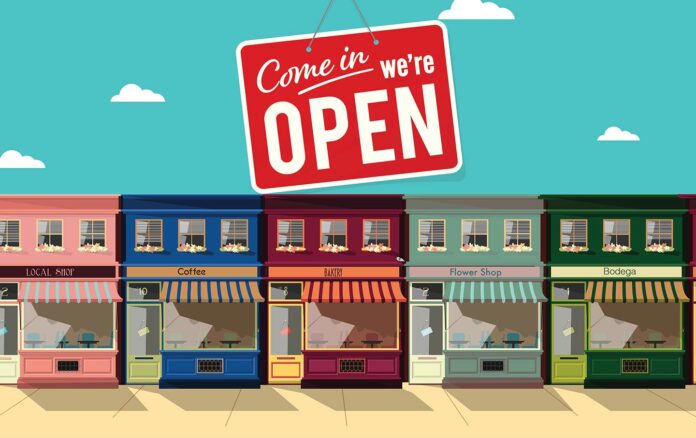Life as a small business owner can be tough. Not only are you working with much smaller budgets than some of the businesses you are competing with, you simply don’t have the resources to provide the same level of service as some of the larger brands in your sector.
As you try to grow your business, you are fighting a constant battle against brands who can simply plough more money into advertising and reduce your visibility to next to nothing.
But it doesn’t have to be like that.
Not all platforms are set up in favour of the big brands. On some platforms, the playing field is a level one on which you can compete by offering a better service, a better product, or by identifying better with your target audience.
So what are these mystical platforms?
Well, primarily they are all online platforms where you can compete without spending a single cent (except for your own time and hard work). It’s time to take on the big brands and win – here’s how.
Building brand awareness online
Building your brand online is not something that happens overnight. As Jeff Bezos, founder of Amazon put it, “Your brand is what other people say about you when you’re not in the room.”
Your brand is essentially your reputation and so this will always take time to build. It’s a process that’s constantly evolving as you tweak aspects of your brand you meet the needs of your customers and target audience.
In order to build your brand awareness and drive more online traffic, you need to invest your time in the right channels. With limited budgets, using expensive paid channels like Google Adwords can quickly drain any marketing budget you have, without delivering any actual results. It’s also a very short-term tactic.
Instead, focus on the areas that are likely to deliver long-term ROI (return on investment). Sure, they might not deliver immediate results, however, investing time and resources into search engine optimisation (SEO) and social media can really make a difference to your online visibility in the long run.
A recent article by expertEasy founder Darren Sherwood identified brand identity and SEO as two key areas for any startup business and those are two areas that don’t need to cost the earth.
Focus on SEO
SEO is a long-term strategy that is essential for the success of any business, not just small businesses. In simple terms, SEO is the process of improving your website to increase its visibility for relevant searches. When talking about SEO, most professionals talk about optimising your website for Google. That’s because Google continues to maintain a 92% share in terms of organic search so if you’re not optimising for Google, it’s going to be more difficult to get found online.
SEO is made up of two key facets: technical and content. Whilst you may need some help with the technical aspects of SEO, content is something you can work on in-house for free. Content is also an area where you can compete with the big brands and win. As long as you are creating well-researched, informative and engaging content, you have an opportunity to rank well in Google search results for the terms you are targeting.
Whenever you create a new piece of content that has a goal of ranking well in Google, the first thing to do is to understand the keywords that people are searching for and ensure these are the focus of the content piece. It’s all too easy to try and guess what people are searching for, however, there are a number of free tools available to help you to identify the exact way that people are searching. Nailing this can really help you to focus your efforts on the keywords that will deliver the best ROI.
If you do have a small amount of budget to spend, we would recommend engaging an SEO agency from the beginning who will be able to carry out a technical audit, content audit and keyword research for your site and identify potential opportunities for improvement. From there, you can then choose to work through those opportunities yourself if you have the skill and expertise within your team.
Focus on local
One advantage small businesses usually have over big brands is a connection to their local community. Small business owners usually have a strong presence within the local community and this is something you should maximise with a goal of getting more and more people talking about your brand, both face to face and online.
Google’s shift to focus on delivering results with a local focus has allowed more and more small businesses to compete with big brands in the search results. If you search for ‘clothes stores auckland’, no longer are the results dominated by the biggest brands like Ezibuy, Boohoo and Farmers. Instead, the first thing you will often see for a search query like that is a map with three businesses listed below. These map listings usually include the most relevant stores that are located close by.
Let’s say you own a small boutique clothing store in Browns Bay. In the past, you would not have a hope of ranking on the first page of Google for the term ‘women’s clothing’, however, when people are searching from locations on the North Shore, you now have a very good chance of ranking in the map results (as long as you follow some basic principals of SEO) which gives you the opportunity to drive visitors to your store or website.
With a big emphasis on shopping local, there has never been a better time to maximise your influence on your local community and use this to improve your overall brand awareness and give yourself a chance to compete with the big brands in the local search space.
Learn from the leading brands
There is a reason big brands are so successful. They spend thousands of dollars and invest tens of thousands of man-hours into marketing. With huge budgets behind them, it can be difficult to compete but that doesn’t mean you can’t learn from them. Start within your sector and then look outside of your sector to find out who is doing well and what they are doing. Here are a few examples to get you started:
Lululemon is renowned as one of the most engaging brands on social media and their lifestyle marketing tactics have earned them enormous brand recognition. They maximise the impact of their social media platforms to engage with their audience and encourage user-generated content through engaging campaigns that aim to inspire.
Betway uses a combination of search engine optimisation, content marketing and social media in order to gain an edge in a competitive marketplace. Instead of simply providing odds on a variety of sporting events, Betway is on a mission to “provide quality betting insights” with “the most informed betting tips of any online media outlet”. This commitment to content and social media promotion has seen them grow rapidly since they were formed in 2006.
Patagonia is another brand to have embraced the power of social media and they actively encourage their customers to ‘buy less, demand more’ in a move to protect the planet and cut down on waste – a message that really resonates with their audience.
Competing with big brands can be daunting, however, it doesn’t have to be. Learn from the the best and do things even better. Focus on the areas that are going to maximise your return on investment and once you start to grow, that’s the time to turn the screw and start investing in other platforms.




